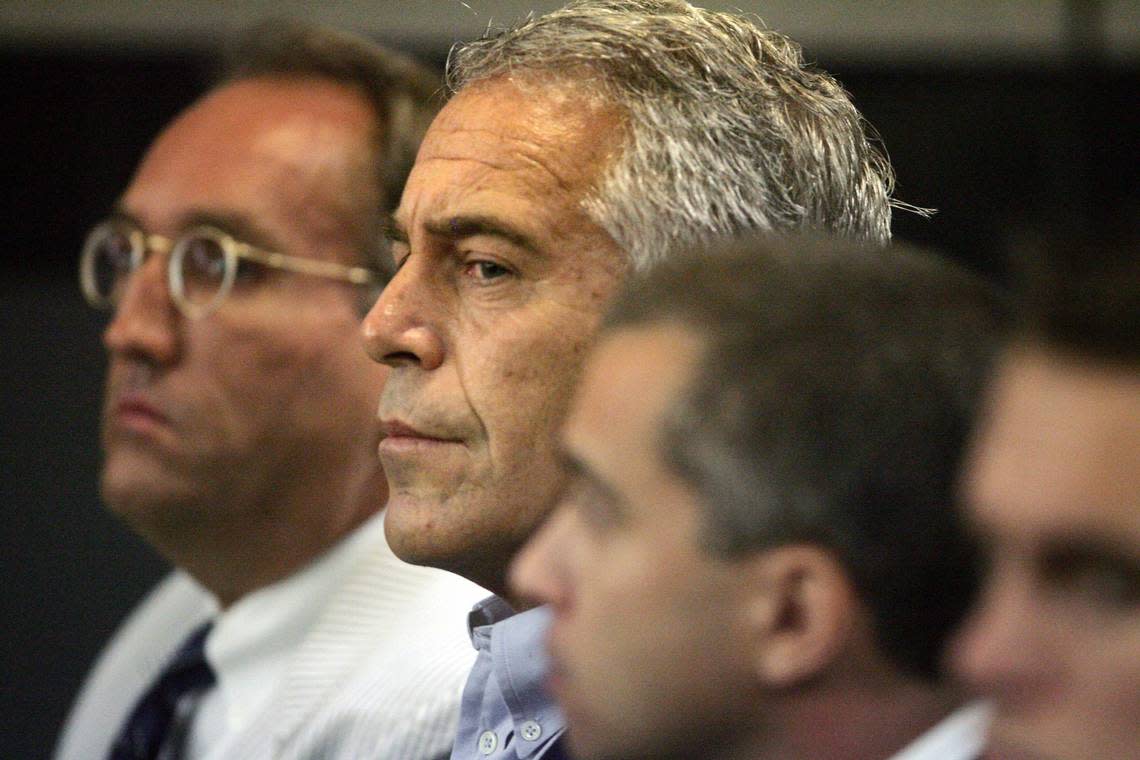Prosecutors’ blame-the-victim game in Epstein’s case was a disturbing injustice | Opinion

The newly released Palm Beach grand jury records in the Jeffrey Epstein case reveal disturbing tactics used by his high-powered legal team in 2006 to manipulate the justice system and help the billionaire escape accountability for his heinous crimes. They succeeded; It was a travesty of justice.
What those 200 pages of transcripts reveal should be a cautionary tale. They show Epstein was aided not only by the lawyers on his payroll, but also by prosecutors in charge of proving Epstein’s guilt but who instead smeared the reputation of his underage victims before a grand jury. The girls were lured to his home to give him paid massages and ended up being sexually assaulted.
The documents reveal the blame-the-victim game Palm Beach prosecutors played by painting the girls as drug addicts, liars, thieves, prostitutes and questionable characters not worthy of belief. Grand jury members appeared to believe the false narrative. Epstein skated out of trouble.
During their testimony, each underage victim was confronted with questions about whether they understood that they had engaged in prostitution and could be charged with a crime. That was akin to asking a rape victim what type of clothing she was wearing.
“Did you have any idea that deep inside of you that you — what you’re doing is wrong?” a juror asked one of two girls who testified.
More importantly, the records also mark a point in time when Epstein could have been stopped. Instead, he went on to molest scores of other girls.
The grand jury was impaneled by then-Palm Beach State Attorney Barry Krischer, who had for months resisted efforts by the Palm Beach Police Department to charge Epstein with multiple felonies for his alleged sexual exploitation of underage girls. The probe had begun when the stepmother of a 14-year-old girl reported that her daughter had received $300 to massage an older man on Palm Beach Island. It was Epstein.
Epstein eventually pleaded guilty to two charges of soliciting prostitution and served a light prison sentence. But in the years since the Epstein case was closed in 2008, Miami Herald investigative reporter Julie K. Brown wrote a series called “Perversion of Justice” that details Epstein’s dark world, made acceptable by his wealth, legion of powerful friends, fancy homes in New York, Paris and the Virgin Islands, and the private jets he used to travel and transport his victims.
After the Herald published its investigative series, a federal judge ruled the non-prosecution agreement eventually brokered by Epstein’s legal team with then-South Florida U.S. Attorney Alexander Acosta was illegal. Epstein was rearrested on sex trafficking charges in New York. The following month, Acosta was forced to resign as U.S. Secretary of Labor. On August 2019, Epstein died by suicide in his Manhattan jail cell.
A Palm Beach County judge unsealed the controversial grand jury records on Monday after years of legal action by the Palm Beach Post, the Miami Herald, CNN, the New York Times and others. And, earlier this year, the Florida legislature passed a new law unseal the Epstein grand jury records, usually kept secret.
The prosecutor’s job is to serve justice for victims, not aid in their re-victimization, which is what occurred here. Epstein was an unusual defendant. He was calling the shots, jockeying to escape prosecution with money and influence. But prosecutors should have held firm in efforts to convict a man who became a notorious sex trafficker.
By casting doubt on the underage girls’ testimonies and credibility, the prosecutor helped Epstein’s expensive legal team achieve their goal. This allowed Epstein to continue abusing underage girls for 11 more years. What an atrocity.
The tactics used were unethical, reprehensible, and a gross disservice to Epstein’s victims. They show how power, money and influence can manipulate a system meant to protect the innocent. It is a failure of justice that must never be repeated.
Click here to send the letter.

